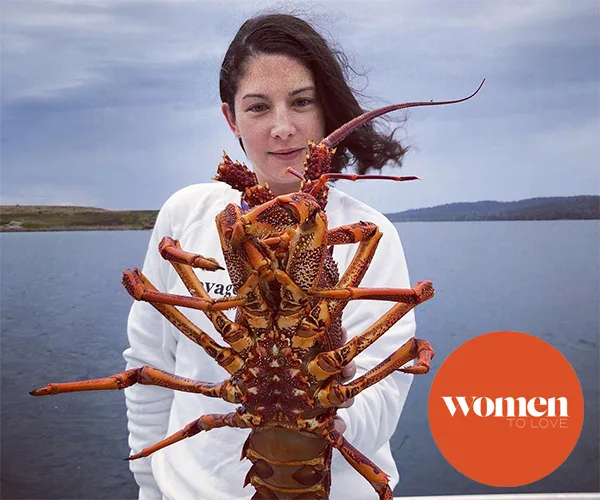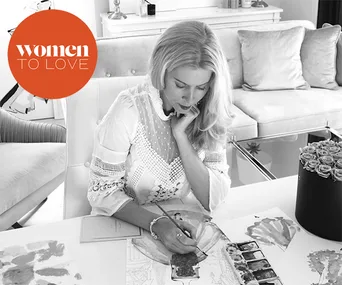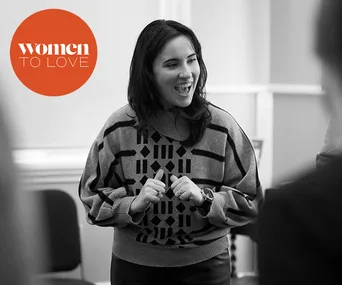Analiese Gregory, one of Australia’s most buzzed-about chefs, didn’t always know she wanted to work in restaurants. After dropping out of school at 16, wrestling her way into an AUT course, and getting knocked back from a few different kitchens, Analiese realised that cooking — for her — was more than a job.
Fast forward to 2018, Analiese is head chef at Tasmania’s lauded Franklin. With a string of high-profile bistros in her wake — Bras in the Aubrac; Mugaritz in San Sebastián; Bar Brosé and Quay in Sydney — Analiese is making a name for herself as one of Australia’s premier chefs.
But her journey from there to here wasn’t always smooth-sailing. We chatted to Analiese about career starts, mistakes, and why the industry has to change its work hours policy.
What would you consider to be your ‘light-bulb moment’ in your career?
When I first started cooking in New Zealand, I wanted to just teach. I didn’t even think about fancy restaurants or anything like that. That wasn’t part of my upbringing. But when I 16, I bought Marco Pierre White’s White Heat and I remember reading it thinking, ‘Oh my god, this is a totally different world to the one I live in. What is this world?’ That made me want to be a restaurant chef.
The same thing happened when I moved to London. I was in a bookshop, looking at Michel Bras’ book, Essential Cuisine, and in the back there were all these photos of where he lived, and of his life. Then I had another moment, thinking, ‘So, I cook in restaurants, but what is this guy talking about? How does photography and art relate to cooking?’
Looking back, what have you been most proud of during your career?
Last year, I was cooking at a Leukaemia charity event in Auckland. My grandfather died of Leukaemia when I was about 15 so it’s a cause close to my heart. My mum didn’t tell me but she had managed to get a table at the dinner, and so she came along and was sitting at my table and was eating my food for one of the first times ever. That might be my proudest moment.
Do you have a piece of advice for young women trying to get their start in the cooking industry?
Especially when you’re young, choose the restaurants you work in carefully. In terms of what you can learn and what they can teach you, but also in the sense of kitchen environments. There are places that I’ve worked in and I hated the kitchen environment, and it can be quite toxic. I do think the industry’s changing, but you do get a lot more out of it if you’re happy at work.
Is there a moment in your career where you’ve looked back and thought, ‘I wish I’d done that differently’?
Yes, definitely. There have been two times when I’ve done projects that were not so much for myself, but for other people, or because I felt guilty. Both of those times I ended up leaving, and not seeing them through because I wasn’t happy. If I could go back, I would do more research and put a bit more work into it, before making life-changing decisions.
Being quite a male-dominated industry, do you have thoughts on how it should change and adapt going forward?
At the moment, it’s in a big state of flux. There’s a lot of distance between the two generations coming and going. Even someone like me, I was trained in kitchen where you’d do 18 hour days, and you were just expected to. Already it’s not like that anymore. It’s going through a state of change where wages are going to have to be like they are in every other industry; people are going to get paid for every hour that they work. Certain attitudes that might have been tolerated before aren’t going to be tolerated anymore.
With all the stuff that’s happening in the states, #MeToo and those campaigns, there’s a spotlight on things that there hasn’t been before.
Have you experienced instances of sexism throughout your career?
I’ve left one kitchen because I found the environment really aggressive and it upset me. It was an all-male kitchen, and it started of really passive aggressive. I was 17 and fresh out of chef school, I mean fresh. This was my first proper job. I would come in and they would have left me a three-page essay on how to portion fish and how I was doing it wrong. It was the kind of place where you’d walk into work and someone would be sitting outside the back door because they’d been told to leave service and not come back. You’d walk into work feeling sick, thinking, ‘What’s going to happen when I get in there?’
Do you think there’s a specific brand of sexism within the cooking industry?
I’ve always felt that there is, but then hearing all that stuff about the movie industry, maybe there’s not. I did think that there was a particular thing about hospitality, but it seems like there are other industries that have that same thing.
There’s a couple of places that I’ve been where they put me on pastry or cold larder because I’m a woman. That would be very hard to prove, but I do believe it’s happened to me throughout my career. When I was used to cooking sauce, or cooking fish, I would go to a new kitchen and they would put me on cold larder or pastry. Halfway through the day, I would say, ‘Hey guys, I’m not actually a pastry chef,’ and they would say, ‘Oh, we just assumed.’
For a long time when I was younger, I had trouble being taken seriously. I had to prove myself constantly. I had to be, not only as good as the men, but better than them to get the same opportunities. Especially when I worked in Europe. Men would come in and go straight to cooking meat, and I would be stuck in the cold larder saying, ‘Why?’
How did you combat that, at the time?
I was always just faster and better at my job. What are you going to say? You can’t just walk up to the sous chef and say, ‘Hey! I think I should be here and not there.’ That’s not going to go down well. Luckily, it hasn’t been that way in my career for a little while now.
With women being such a minority in the cooking industry, how should things change to open the door for them?
It’s going to take time and cultural changes. Part of the problem in the industry, and even for myself, you think you have to choose between this and having a family, because you can’t do 16-hour days and also have kids. If the hours change and roles in the kitchen change, and there’s more part-time roles where you can get paid appropriately, and you don’t have to work nights… then that choice that you think you’re going to have to make isn’t there anymore. You know, men can stay at home with the kids, too!
That entire cultural mentality that if you have children, then you can’t go out and work has to change. Maybe it’s not ideal for the industry, but it needs to be looked at.
Have you had a mentor that has championed you throughout your career?
Peter Gilmore’s been so helpful. I worked with him at Quay for four years, and started there on pastry. At the beginning I was still thinking that maybe I just wanted to be a pastry chef, and he sort of forced me into the kitchen and made me his sous chef! Ever since I left, he’s always been helpful and interested in what I’m doing.
He’s one of those people where, in his kitchen, it doesn’t matter if you’re male or female. He chose to work with who he wanted, and pushed forward who he wanted, regardless of sex. It’s not something I thought about until I left, people ask me, ‘What is it like to be a woman in the kitchen?’ I always think, ‘At Quay, I didn’t even think about it.’




